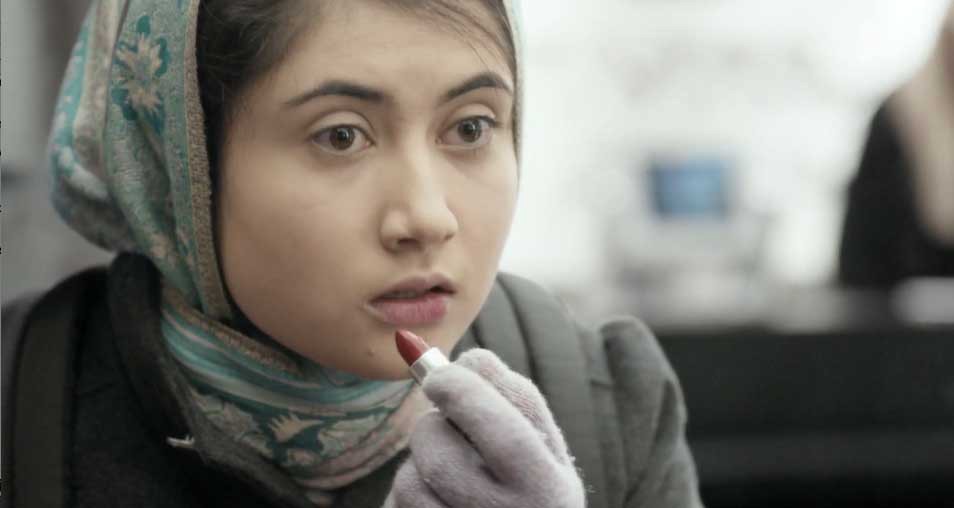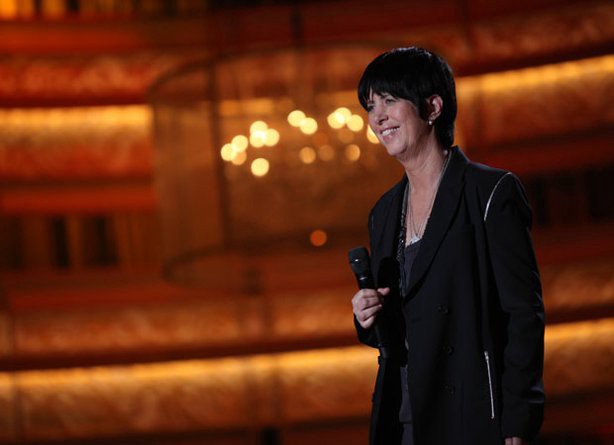
When this year’s Oscar nominees were announced, we noted that Academy voters had given us the whitest, malest, most deflating awards season in recent history. As an infographic from the Women’s Media Center helpfully (and depressingly) illustrates, the Academy nominated more men than women in non-acting categories by a margin of five to one, and women were entirely shut out of seven Oscar categories. These numbers are obviously unacceptable — and reveal much bigger systemic issues at play — but we’d like to take this opportunity to celebrate and spotlight six nominees whose work has been recognized this year.
Comprised of newcomers and industry vets in categories as diverse as film editing and costume design, these nominees played an instrumental role in telling stories about everything from preserving artistic integrity when the corporate world tries to commodify you and your body to an unlikely ragtag group of misfits on a mission to save the universe.
Original Song Nominee: Diane Warren for “Grateful” (“Beyond the Lights”)
We’ve been singing — nay, belting — the praises of Gina
Prince-Bythewood’s “Beyond the Lights” since its world premiere at TIFF last
year. As we wrote, the film humanizes Noni (played to perfection by Gugu
Mbatha-Raw), a hypersexualized pop star, in an “intelligent, moving, and
never-schmaltzy romance set in the world of music videos.”
“Grateful,” Diane Warren’s Oscar-nominated original song
from “Beyond the Lights,” perfectly encapsulates Noni’s transformation from an
overproduced and expendable product to an authentic and empowered artist. The night she wins
a Billboard Award, Noni attempts suicide; her debut album is predicted to break
records and she seems to have it all, but the fame and fortune she’s worked so
hard to achieve can’t compensate for the toll she’s had to pay. Noni has lost
her own voice in the process — being told what to do, where to go, how to look,
who to be — and the film charts her painful (but rewarding) struggle to
discover who she really is and how to express herself through music, specifically through songwriting.
Warren manages to convey Noni’s complex
and emotional character arc in just over four minutes, capturing everything
from her psychological and professional rock bottom to her newfound sense of
pride and gratitude for who she’s become along the way. “There were a lot of
tears I had to cry through/ A lot of battles left me battered and bruised… I
was broken… I was so convinced that I was over/ But I had to fall … to rise
above it all,” sings Rita Ora, who will perform the song at the ceremony come
February 22nd. The song’s verses lead to a powerful chorus — a fitting choice considering that it functions as Noni’s anthem of
self-acceptance.
Warren, who was inducted into the Songwriters Hall of Fame
in 2001, is no stranger to the Oscars: “Grateful” marks her seventh nomination.
You may not recognize her name, but you’ve undoubtedly heard plenty of her songs, which include “I Don’t Want to Miss a Thing” from “Armageddon,” “How Do
I Live” from “Con Air,” Cher’s “If I Could Turn Back Time,” and Toni Braxton’s
“Un-break My Heart.” Of her prolific work in film, Warren has said, “I love to
capture an emotion and bring it to life.” “Grateful” successfully brings Noni’s emotions to life, and as it plays over
the closing credits of the film, the song reminds us of everything we experienced — and felt — alongside Noni.
Best Documentary Feature: Joanna Natasegara, producer (“Virunga”)
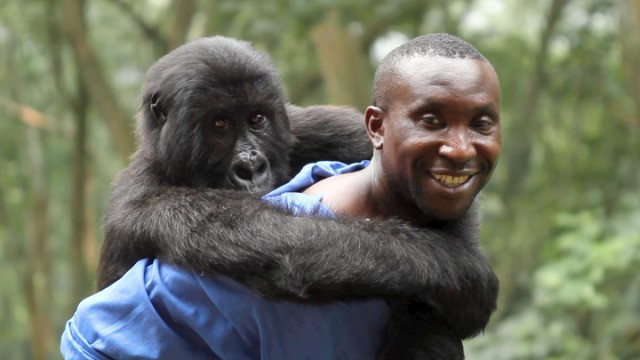
Nature documentaries have evolved in recent years to become the stuff of novels. “Virunga” is a Netflix doc that follows the struggles of a dedicated few conservationists working in Virunga National Park in the eastern Congo, a place that the only remaining mountain gorilla population knows as home. On one side, there are the wildlife park rangers, who are understaffed and working with limited resources against the armed poaching groups and rebels who hide out in the rich landscape. On the other side is an European oil company looking to wreak biological havoc in the park — the film reveals proof of the company’s illegal explorations in the area.
“Virunga” follows in the tradition of the 2010 Oscar-winning documentary “The Cove,” with the filmmakers following conservationists into tense, potentially dangerous situations. However, the stakes seem to be even higher here — the gorillas appear destined to live a life kept only in zoos if the wildlife rangers cannot keep them safe. The park is a biodiversity haven, with numerous species finding refuge from the relentless black-market trade of poaching. But the danger is also quite real — over one hundred rangers have been killed in the last fifteen years and, close to the film’s release, the park director, Emmanuel de Mérode, was attacked and critically wounded.
Joanna Natasegara is nominated for her work as a producer on the film. She is the founder of Ultra Violet Consultancy, a company that specializes in “maximizing the social change potential for film and media projects.” Natasegara has spoken about the difficulty of financing the film due to the conditions it was filmed under — if too much of the footage was shown early on, it could have put the filmmakers on the ground in danger. She orchestrated a distribution deal with Netflix, making the film available to as wide an audience as possible, while donating the profits of that deal directly back to the park. Natasegara’s involvement was crucial to the film and getting its message out to the world, and she has said that the decision to get involved was easy: “It’s such a David and Goliath fight, and it would be so easy to say no because of the risk it implied, but you realize these people are doing so much that the least you can do is document it and show it to the world.”
Achievement in Costume Design: Milena Canonero (“The Grand Budapest Hotel”)
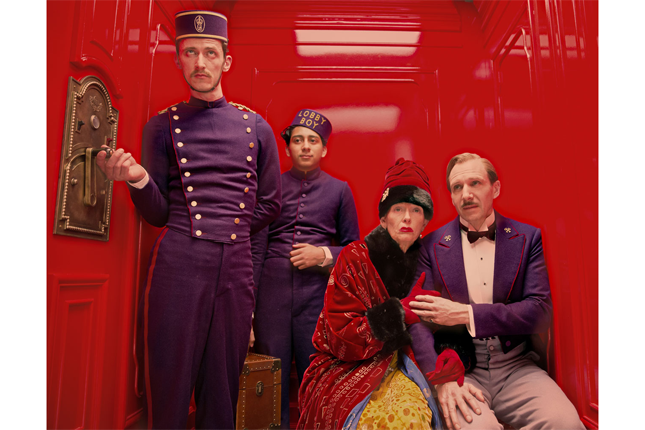
By now, the visual trademarks of a Wes Anderson film are easy to spot. It has been said that you can immediately spot a Wes Anderson film from the set pieces alone, and it’s true that his works all bear a signature touch of craftsmanship and intricate design. Anderson has a stable set of actors with whom he regularly collaborates, including Bill Murray, Luke and Owen Wilson, and Jason Schwartzman. But one of his frequent and influential collaborators behind the scenes is a woman: costume designer Milena Canonero.
“The Grand Budapest Hotel” is Anderson’s most successful film to date, earning both critical acclaim and financial success. Canonero is up for an Oscar for her work on the film after working on two previous Anderson projects. It’s not surprising that Anderson sought her out as a collaborator, given his penchant for particular design and the fact that he counts the hyper-meticulous Stanley Kubrick as one of his inspirations; Canonero’s first film work as a costume designer was on Kubrick’s “Clockwork Orange,” and she later won her first Oscar for her work on Kubrick’s “Barry Lyndon.” She has won three Oscars over the course of her long career and been nominated for nine. Of her work on “The Grand Budapest Hotel,” Canonero has said that her success stems from “submerging myself into a Wes world. He encourages and stimulates me to bring my own creative input.”
Achievement in Film Editing: Sandra Adair (“Boyhood”)
https://www.youtube.com/watch?v=TDsnNVmHAj0
Richard Linklater is known for his unconventional approach to film, specifically his ability to revisit the same story and subjects after a long period of time has passed. He’s done this in his “Before” trilogy, a character examination of two lovers played by Julie Delpy and Ethan Hawke in three parts, executed and filmed over the course of twenty years with substantial input from the actors on the scripts and the process as a whole. One could say that Linklater’s critically acclaimed “Boyhood” is a continuation of that motif in his past work. “Boyhood” follows the same broken family over the course of twelve years, resulting in a cinematic conclusion that is as noteworthy for its experimental nature as it is for the real and relevant emotional journey it portrays.
Sandra Adair has been a longtime partner of Linklater’s, having worked on every one of his films as an editor since 1993. The challenges presented by the prospect of a twelve-year shoot seem daunting, but Adair agreed to project with enthusiasm. If Linklater is a pioneer of filmmaking, so is Adair — their work on “Boyhood” is like no other. Adair would work on the editing immediately following each year’s filming, which would result in about a week’s worth of footage. As the filming progressed throughout the years, Adair began to turn a critical eye to the connections between chapters, making sure the film had consistency and didn’t swerve from the narrative. After working on “Boyhood” for over a decade, Adair has spoken about the nature of time and aging as portrayed in the film, saying, “I think that’s part of the beauty of the film: you’re experiencing these things the same way you are in your life.”
Achievement in Make Up and Hairstyling: Elizabeth Yianni-Georgiou (“Guardians of the Galaxy”)
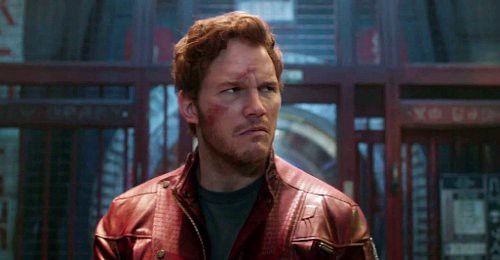
The Marvel Universe is responsible for some of today’s most visually electrifying films. Whether the story is based in an altered reality, like “Spiderman,”or dares to delve into a godly realm, like “Thor,” each film showcases an aesthetic consistency responsible for informing the audience about the world in which the characters live. Sometimes, however, the story is based in more than just one world, presenting an interesting challenge for one department in particular: make up and hairstyling.
Cue Elizabeth Yianni-Georgiou, the make-up and hair designer responsible for the more earthly looks in this year’s second highest-grossing film “Guardians of the Galaxy” (after “The Hunger Games: Mockingjay — Part 1”). While her co-designer David White (with whom she shares the nomination) created the film’s out-of-this-world prosthetics, Yianni-Georgiou focused her talents on perfecting Star-Lord’s appearance. “I wanted him to look really funky, and I wanted him to have a hero look, but he still needed to be really hot,” she told Vanity Fair earlier this month. “We gave him cheeky sideburns that came more from the 80s and stubble to give him a bit more of an edge. We chiseled his cheekbones. I kind of gave him colored highlights as well; we knew we would have a lot of moody lighting.”
With sixty-three credits to her name, there is no time or era, no planet or galaxy that Elizabeth Yianni-Georgiou has yet to conquer. She has served as make-up and hair designer on an impressively eclectic array of films, ranging from dramas like “The Social Network” and “An Education” to aesthetically outrageous films such as Marvel’s “Thor” and Tim Burton’s “Dark Shadows.” Regardless of the world, her goal remains the same with each film she makes: “I want the audience to feel as if they are part of the story and I do this by producing work that is strong, consistent and above all realistic.”
Best Live Action Short: Talkhon Hamzavi (“Parvaneh”)
Talkhon Hamzavi’s film tells the story of Parvaneh, a young Afghan immigrant living illegally in Switzerland. She lives a careful life, filling her time with odd jobs and long-distance phone calls back home. Upon hearing her father has taken ill, she must travel out of her comfort zone and into the heart of Zurich in pursuit of finding someone with a valid passport to help her wire money to her family. After hours of searching, she finds help in the form of a rebellious teenager named Emily — or rather, they find each other. The two navigate the night together and, it is here, in the quiet and uncertain moments of female friendship, that the film shines its brightest.
It is hard to believe that “Parvaneh” not only marks first-time nominee Talkhon Hamzavi’s directorial debut, but was completed while the filmmaker was still a student. The short served as her final project in pursuit of her degree from Zurich University of the Arts and, in 2013, went on to earn her the silver medal for Best Foreign Student Film at the 40th Student Academy Awards. “I just wanted to make a good movie for myself,” she said when asked if the success of the film surprises her. “I wasn’t like, ‘I want to go to great, big festivals and the Oscars!’” If Hamzavi’s elegant and insightful exploration into issues of immigration, race, and gender indicates what to expect from her future work, it is clear she is well on her way to becoming one of Switzerland’s most promising emerging directorial talents.
